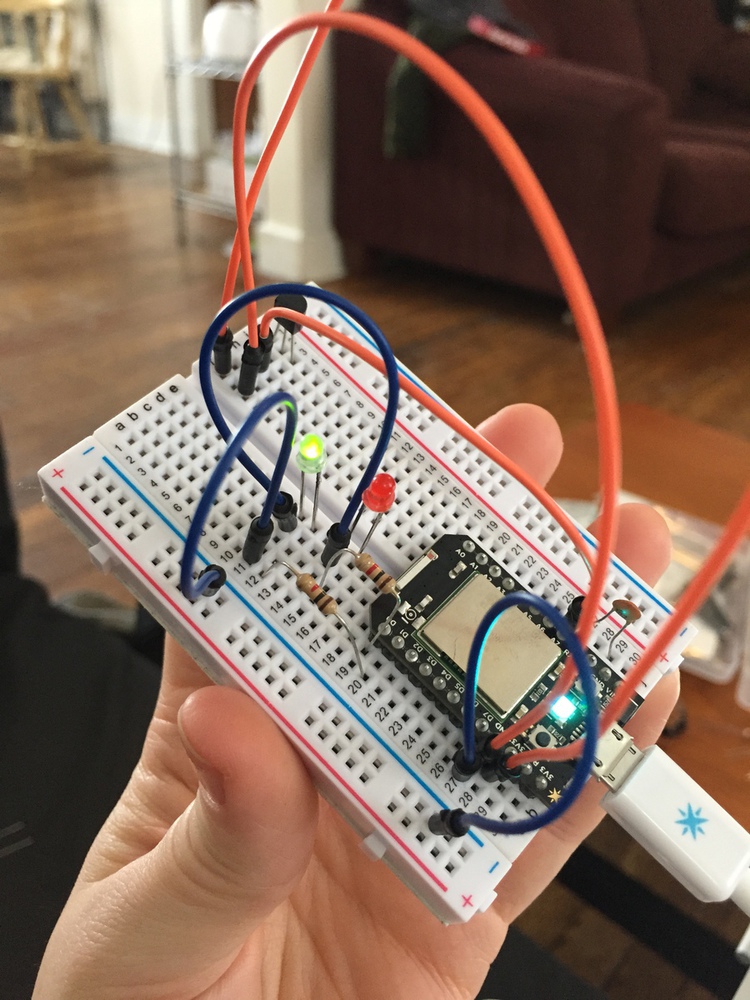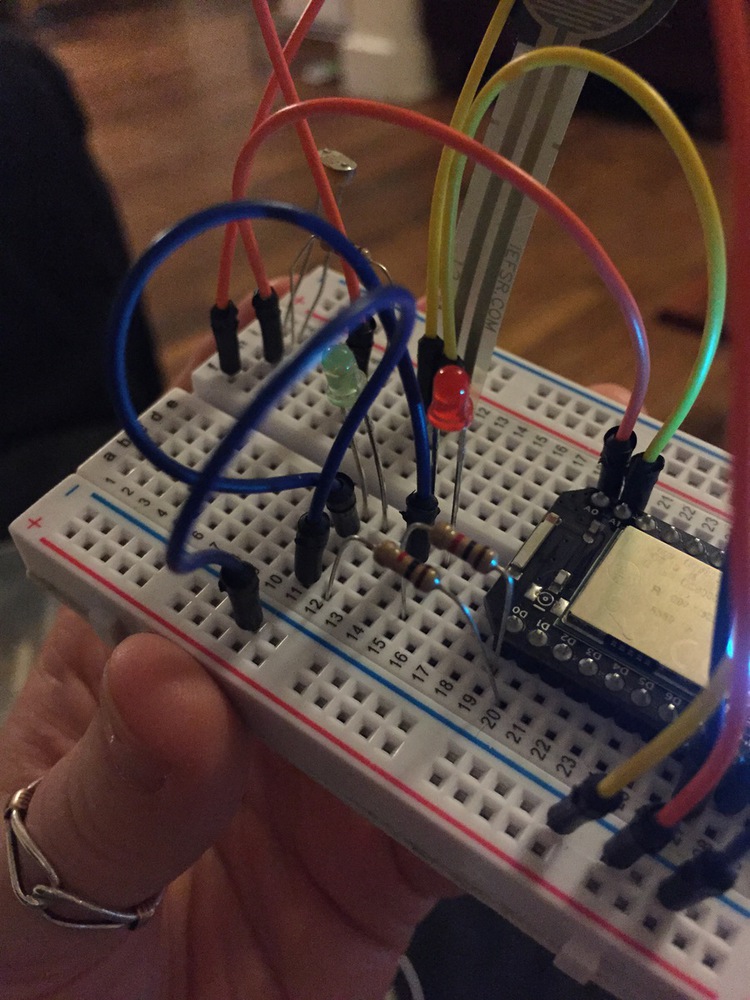Alarm clocks have historically been simply an alarm function set to go off at a pre-determined time. Now, with more precise motion sensors, wearable technology and phone applications are beginning to use measurements of your natural body movements to determine how awake you are at any given moment. This enables them to wake you up at a more opportune time, perhaps when you are already coming out of deep sleep. I believe that the next step in the smart alarm trend will be alarms that not only track your motion and give an alarm sound, but also give off refreshing morning light and physical cues that it’s time to start the day.
Because a full alarm-sounding, light-emitting, vibration-indicating smart alarm clock would be too ambitious a project, I have decided to mock up instead two of the sensors that might be included in the smart alarm of the future. My small prototype (which I call SparkAlarm) uses a photoresistor and pressure sensor to ‘read’ whether or not the user is awake. If the user has turned on his or her room lights, the photo sensor’s indicator lights with show this. If the user is gripping the pressure sensor (which in this case indicates awakeness), the pressure sensor’s indicator lights will react. A larger goal for the project would be to use a combination of factors (time of day, light in the room, action by the user, etc.) to determine when to sound an alarm and when to quiet down again.

